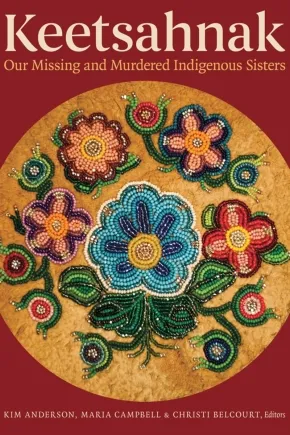Maria Campbell
Maria Campbell is a Métis writer, playwright, filmmaker, scholar, teacher, community organizer, activist, and elder (born 26 April 1939 in Park Valley, SK). Campbell's memoir Halfbreed (1973) is regarded as a foundational work of Indigenous literature in Canada. She has authored several other books and plays, and has directed and written scripts for a number of films. She has also worked with Indigenous youth in community theatre and advocated for the hiring and recognition of Indigenous people in the arts. She has mentored many Indigenous artists during her career, co-established shelters for Indigenous women and children, and run a writers' camp at the national historical site at Batoche, where she has produced commemorative events related to the famous battle of the 1885 North-West Resistance.
Campbell is the winner of the 2023 Cheryl and Henry Kloppenburg Award for Literary Excellence, was named a fellow of the Pierre Elliott Trudeau Foundation in 2012, was appointed for Stanley Knowles Distinguished Visiting Professorship at Brandon University, and has served as Cultural Advisor at the University of Saskatchewan College of Law and Gwenna Moss Centre for Teaching since 2017. She is an officer of the Order of Canada and holds six honorary doctorates.
Books (1)
Synopsis:
In Keetsahnak / Our Murdered and Missing Indigenous Sisters, the tension between personal, political, and public action is brought home starkly as the contributors look at the roots of violence and how it diminishes life for all. Together, they create a model for anti-violence work from an Indigenous perspective. They acknowledge the destruction wrought by colonial violence, and also look at controversial topics such as lateral violence, challenges in working with “tradition,” and problematic notions involved in “helping.” Through stories of resilience, resistance, and activism, the editors give voice to powerful personal testimony and allow for the creation of knowledge.
It’s in all of our best interests to take on gender violence as a core resurgence project, a core decolonization project, a core of Indigenous nation building, and as the backbone of any Indigenous mobilization. —Leanne Betasamosake Simpson
Contributors: Kim Anderson, Stella August, Tracy Bear, Christi Belcourt, Robyn Bourgeois, Rita Bouvier, Maria Campbell, Maya Ode’amik Chacaby, Downtown Eastside Power of Women Group, Susan Gingell, Michelle Good, Laura Harjo, Sarah Hunt, Robert Alexander Innes, Beverly Jacobs, Tanya Kappo, Tara Kappo, Lyla Kinoshameg, Helen Knott, Sandra Lamouche, Jo-Anne Lawless, Debra Leo, Kelsey T. Leonard, Ann-Marie Livingston, Brenda Macdougall, Sylvia Maracle, Jenell Navarro, Darlene R. Okemaysim-Sicotte, Pahan Pte San Win, Ramona Reece, Kimberly Robertson, Leanne Betasamosake Simpson, Beatrice Starr, Madeleine Kétéskwew Dion Stout, Waaseyaa’sin Christine Sy, Alex Wilson
Educator Information
Useful for these subject areas: Women's Studies, Indigenous History, Sociology, Gender Studies, Social Science: Violence in Society.
Additional Information
400 pages | 6.00" x 9.00"







